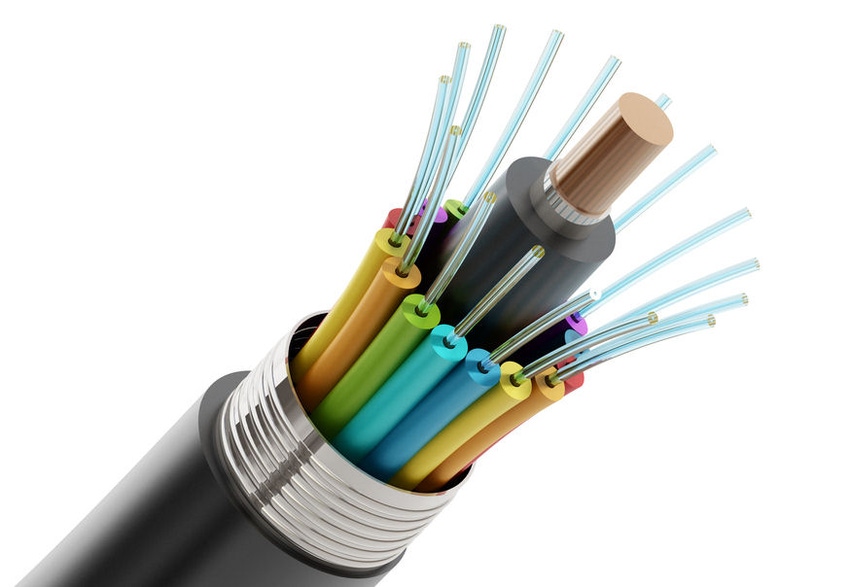Investment group KKR has agreed to plough cash into another European fibre initiative, this time partnering up with T-Mobile in the Netherlands, in a roundabout sort of a way.
April 7, 2021

Investment group KKR has agreed to plough cash into another European fibre initiative, this time partnering up with T-Mobile in the Netherlands, in a roundabout sort of a way.
KKR and Deutsche Telekom-backed investment management platform DTCP announced the launch of Open Dutch Fiber an independent wholesale fibre-to-the-home (FTTH) network operator…or at least it will be when it has rolled out its infrastructure. T-Mobile Netherlands has agreed to become Open Dutch Fiber’s anchor tent.
The investment partners envisage spending €700 million to roll out FTTH to 1 million households over five years, mainly in urban areas. Open Dutch Fiber will begin operations in this current quarter and has construction agreements already in place, DTCP said.
As has been well documented, the announcement comes at a time at which infrastructure assets, like fibre, are increasingly finding favour with the investment community, offering stable and often long-term returns.
DTCP is no stranger to the telecoms infrastructure world, having been founded just over six years ago as Deutsche Telekom Capital Partners, effectively replacing the German incumbent’s T-Venture VC fund, which then closed for new investments. It now only uses the short version of its name and describes itself as an autonomous investment management group majority owned by its management team and backed by Deutsche Telekom.
And KKR is becoming a recognised name in the fibre space too. Its most high-profile investment in this area is arguably the 37.5% stake it has agreed to take in FiberCop, the business that will house TIM’s fixed access business in Italy. However, it also acquired a 60% stake in Telefonica’s fibre operations in Chile in February and is one of the new owners of Spain’s MasMovil, to name a couple of recent deals. It bought a majority stake in UK fibre broadband firm Hyperoptic 18 months ago and until last year also had a majority position in German fibre business Deutsche Glasfaser.
Indeed, “both are large and experienced parties in the fibre infrastructure industry with considerable financial means and experience in the construction of fibre networks throughout Europe,” T-Mobile Netherlands said, in a statement.
The companies are also tapping into some significant experience when it comes to appointing executives. Open Dutch Fiber will be led by Jordi Nieuwenhuis and Uwe Nickl, formerly co-chief executives at Deutsche Glasfaser; prior to that Nieuwenhuis co-founded Reggefiber in the Netherlands. Nieuwenhuis and Nickl are dubbed co-founders of Open Dutch Fiber. Its CEO will be Michael Griffioen.
“We are building a digital infrastructure platform with open access to all operators, to ensure an efficient and rapid deployment of capital resources, while avoiding uneconomical overbuild,” Nieuwenhuis said.
“The creation of Open Dutch Fiber is an important milestone in the acceleration of fibre rollout in the Netherlands and a blueprint for innovative financing solutions in European digital infrastructure,” added Vicente Vento, co-founder and CEO of DTCP. “We are firm believers in the sharing of digital infrastructure and are establishing Open Dutch Fiber as an open access model, enabling attractive economics for operators and best prices for consumers. We look forward to the collaboration with our partners.”
Vento’s comment hints at a pricing model that is made a little more explicit in T-Mobile Netherlands’ own announcement.
DTCP describes T-Mobile as an “FMC challenger in the Netherlands” and the telco itself pledges to bring high-speed fibre-based Internet to customers at low prices…providing those customers also take an unlimited mobile plan. Specifically, it is offering fixed services of between 1 Gbps and 10 Gbps – with the usual “where available” caveat – for €25 per month, in conjunction with an aforementioned mobile plan.
“T-Mobile is the first provider in the Netherlands that offers these speeds at a very low price and thereby challenges the established market order of significantly higher rates,” it crows.
The telco notes that Open Dutch Fiber is offering “very competitive conditions” to all retail customers, and calls on others to replicate such a model.
“We are fulfilling the promise we made to the Dutch consumer at the time of the merger with Tele2; everyone in the Netherlands has the right to high-speed internet,” said Søren Abildgaard, CEO of T-Mobile Netherlands.
“We had already started but are now accelerating by becoming the first tenant of Open Dutch Fiber which will secure super-fast internet access to 1 million addresses, but as far as I’m concerned Open Dutch Fiber should not stop there. If suitable new projects come along, I expect Open Dutch Fiber to jump on them so the numbers could easily grow,” Abildgaard said.
That might well be an easier to expectation to meet with two big investment groups holding the purse strings, rather than telco shareholders.
About the Author(s)
You May Also Like








.png?width=300&auto=webp&quality=80&disable=upscale)


_1.jpg?width=300&auto=webp&quality=80&disable=upscale)


.png?width=800&auto=webp&quality=80&disable=upscale)